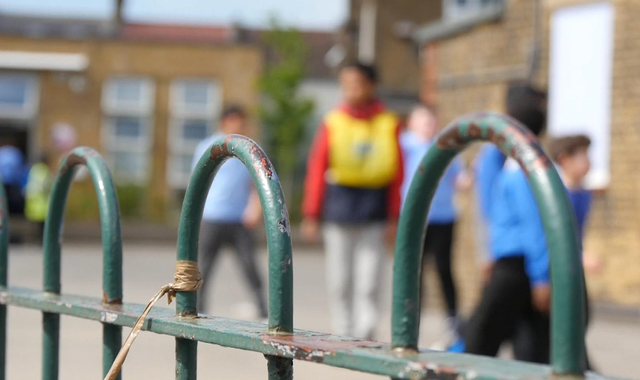Children excluded in primary school less likely to pass GCSEs, new research warns

The majority of children excluded in primary school don't pass their GCSEs in English and Maths, according to new research.
The charity Chance UK looked at the long-term impact of children being excluded or suspended in primary school.
The study tracked various year groups across their school lives and included data from 3.2 million pupils in England.
They found that 97% of those excluded at primary school had a special educational need or disability.
Mary-Anne's* son has ADHD, before his diagnosis schools struggled to cope with his behaviour.
She said: "My son was permanently excluded at five years old; they referred him to go to a pupil referral unit.
"He would have been the only five year old in the building. I was like 'No, we're not doing this'.
"My son was the angry boy. I was saying there must be a reason why he gets so angry and then be completely calm - but they [the teachers] were just like 'no he's really naughty'."
More than 22,000 children aged six years and under were excluded or suspended in primary schools in England in 2022.
But teaching unions have raised concerns that, since the pandemic, behaviour in classrooms has significantly worsened with teachers struggling to cope.
Tom Bennett, Department for Education behaviour advisor, says exclusions are a last resort.
He said: "Exclusions are done in the most extreme circumstances for example when a child is violent towards a teacher or abused another student or persistently disrupted lessons.
"You can't teach a lesson if someone is throwing chairs at you. Exclusions are incredibly rare; the average primary school excludes one child every 17 years."
Read more from Sky News:
Minibus of football fans overturns in crash with 17 people injured
Injured survivors from Manchester bombing suing MI5
Lockdown famous osprey welcomes earliest egg of season
Mary-Anne's son was helped by Chance UK which matches students with mentors to provide support to children with behavioural and emotional difficulties.
The charity is calling on the government for additional funding for specialist support in primary schools.
A Department for Education spokesperson said: "For pupils at risk of exclusion, we've set out a new model for alternative provision schools to work with mainstream schools and provide targeted support early on, helping improve behaviour, attendance and reduce the risk of exclusions."
*Real names have been omitted in this report.

 Yahoo News
Yahoo News 
